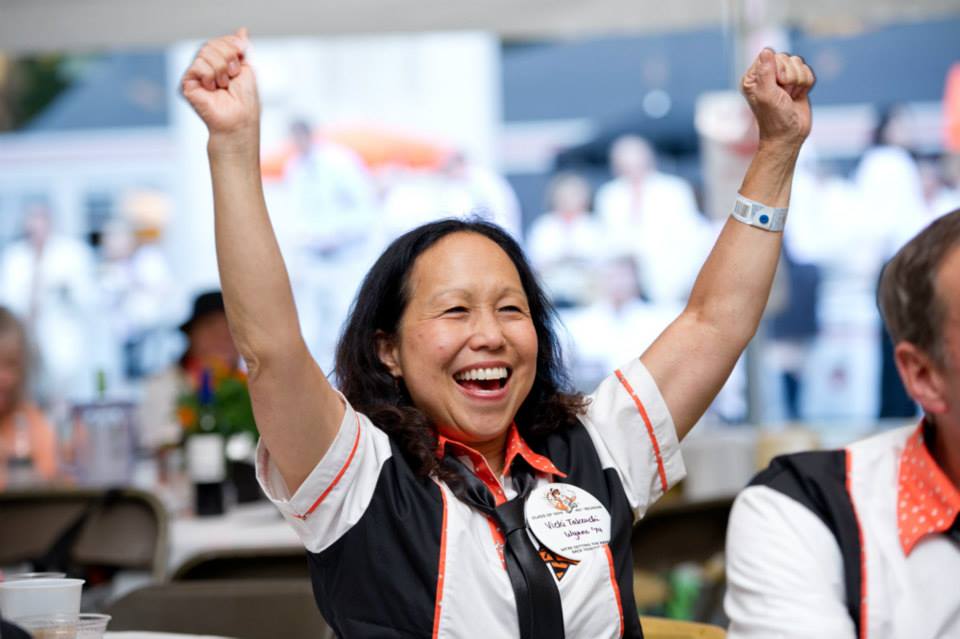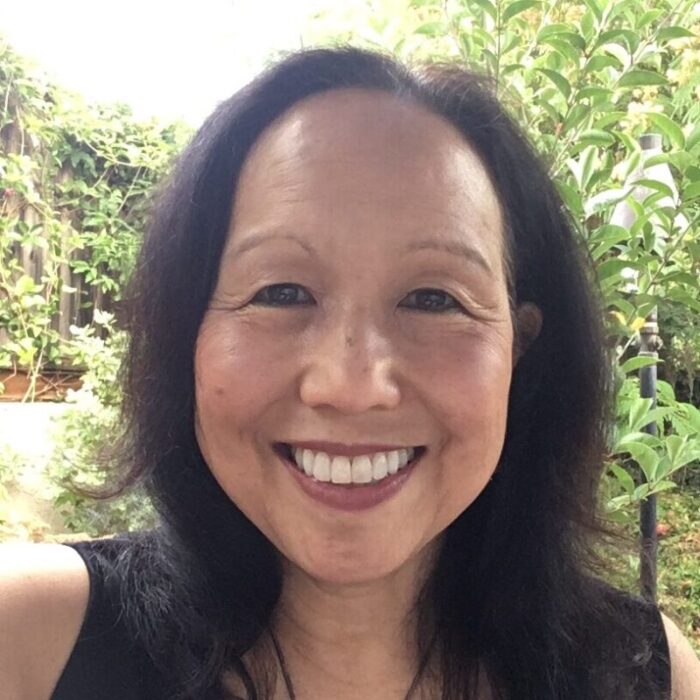1. What was a significant location on campus for you? Why? What was a defining (or pivotal) moment of your life?
The Third World Center (TWC). Michelle Obama mentions in her book Becoming, as a place where she worked and felt at home. The TWC was home for a lot of us minority students back then. I was in the second class of women, and one of 4 Asian-American women in my class (’74). The first Japanese American freshman woman to have attended all four years. This was the time when the fabric of Princeton changed with women and diversity (minority students – African-Americans, Latinos, Asian Americans, Native Americans). I was active with recruiting minority students back then for the predominantly white male campus. In the spring of 1971, I was part of the Firestone Library sit-in which was the first time I stood up for something I strongly believed in, which was bringing light to admission policies which didn’t include financial aid for minority students. After a trial on campus, we had gotten the Third World Center, where minority students could socialize, have cultural activities, and have a place where they felt they belonged. The TWC was eventually torn down and the Carl Fields Center was built. I fell so proud to have been part of something where future generations could also feel welcome. And now the issue we were protesting is no longer an issue. President Eisgruber is totally in favor of first-generation college students (FLI) attending Princeton, with full financial aid. This is a full-circle moment for me! It just took 40 years!
The TWC was where we could hang out, cook ethnic food, have a place where we felt like we belonged.
Before the TWC was established, there were some of us who were involved with the summer minority program, which continues on (FLI). The first group was all men. I was involved with the first program to include women. The summer program was for three weeks before classes began, addressing academic, social, and cultural issues. It was exciting to have the whole campus to ourselves, with women and minority students, before the influx of white males took over the campus. When classes began, we continued to meet, to address recruitment of more minority students from different geographic areas, as well as support and mentor the minority students already on campus. I found my favorite locations on campus were wherever we would meet as a group. Often times that was in the admissions office, with our advisor Roberto Barragan, who was part of the admissions staff.
Another pivotal moment in my relationship with Princeton: I did not return to campus after I graduated until my 20th reunion. My father died two weeks before my graduation. So my final days at Princeton were flying back to California for his funeral, returning to Princeton to defend my thesis, and then graduating without my father present. I stayed involved with Princeton by being part of the alumni schools committee and interviewing high school students for Princeton. I had done that my whole time at Princeton as we tried to increase the minority student pool. I got married, had two kids. When my son was 8, I decided to go back to reunions for the first time. Kids are great finding other kids, and that was my transition back to being involved with Princeton again and healing so many wounds of racism, isolation, and transformation. I brought my whole family to my 25th reunion, and now have attended every 5 years with my husband. It has been a joy to witness Princeton’s transformation and how the tapestry of what Princeton looks like now is richer and more beautiful. I now feel proud and grateful to have been one of the pioneers.
2. How did your personal identity shape your Princeton experience?
I feel like I’ve gotten to live the American Dream as a Japanese American. My grandparents came from Fukuoka, Japan in the early 1900’s with a dream for a better life for their children and grandchildren. My grandfather came first with his brother. They were 2 of 13 children. The only two who came to America. My grandfather became a photographer. His brother ran a dry cleaners. My grandmother and her sister came over as picture brides and the two sisters married the two brothers. My grandparents and parents were both imprisoned in the Japanese concentration camps during WWII, even though my parents were American citizens. When my generation was born, we were their hope. Education was stressed. Even though my grandfather didn’t speak English, he would tell me in Japanese to “Study hard,” and slip me a $10 bill. I was the first grandchild and took this message to heart. I grew up in inner city Los Angeles, attended a predominantly black high school, with a loving, generous, kind mother who always was helping others. A kind white philanthropist came to our high school and told the counselors to have their best students apply to the Ivy League schools who were beginning to integrate and welcome diversity. I was one of the lucky ones who applied and got accepted to Princeton, to be part of this change.
When I got to Princeton, I wanted to take full advantage of this opportunity. I loved to sing and got into the glee club. But I had to drop out because the academic load was a lot. I was also working in the dining hall 5 days for my financial aid, and very involved with other minority students trying to keep the momentum going for more applicants and supporting those of us who were already there. As an Asian American, I felt I had to be part of the movement starting and that’s where my focus was. I didn’t really get to enjoy the other activities. I am so tickeled to see so many minority students just naturally integrated into the school, in the singing groups, just everywhere! During my 45th reunion, an Asian senior presented his thesis play at Mc Carter Hall (Theatre Center). Loved it!
3. If you could relive your time at Princeton, what would you do differently?
I recall wanting to do so much and take advantage of so many opportunities, but there weren’t enough hours in the day. As I look back, I realize I was making history. From protesting at Firestone Library (nice Asian girls were usually obedient and never would do that!) to creating the Third World Center for our growing minority community to attending Princeton and giving a new face to what Princeton now looked like…these are what I cherish most about being a Princeton student from 1970-74. All the obstacles and transformations were part of the process of creating what Princeton is now.
4. If you could relive your time at Princeton, what would you keep the same?
Princeton’s commitment to service, education, and excellence. I so appreciate President Eisgruber and his commitment to be inclusive and diverse. That was the what I felt all my years at Princeton was about. I was often the only woman, the only Asian, the only one on financial aid. I am so grateful that Princeton gives opportunities to those who might not be able to attend.

5. What is one of your best memories from the She Roars presentation at the opening of the Lewis Arts Center?
When I walked in, there were a group of wispy, graceful dancers all dressed in white, traveling across the main floor, with beautiful music in an expansive space. What a vision now engraved in my mind! The Lewis Arts Center is a dream come true! Wish we could have had something like that! When I was at Princeton, I ventured out into the world of modern dance with Ze’eva Cohen, dancer and teacher extraordinaire. Princeton had brought Ze’eva in to teach modern dance for the women, but classes were filled with men. Many became professional dancers and started their own companies. Our dance space was a room off of Dillon Gym, where they added mirrors. Chili was the drummer, who Ze’eva brought with her from New York City. The modern dance classes helped my nerdy self feel more at ease in my body and creative expression. I loved that we got to perform in so many different spaces. (outside, wherever there was space for us to move!)
